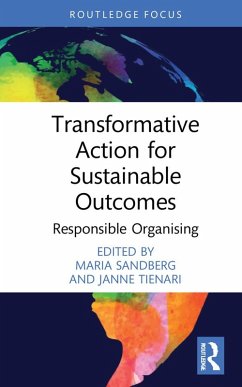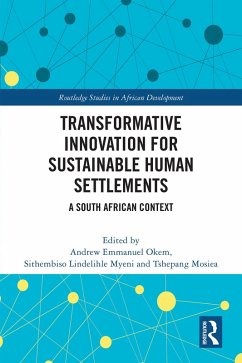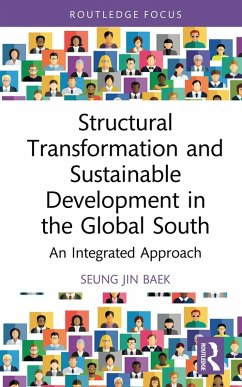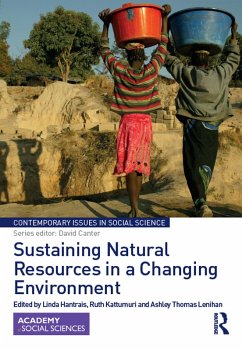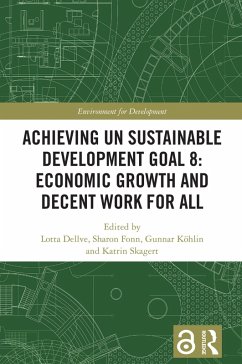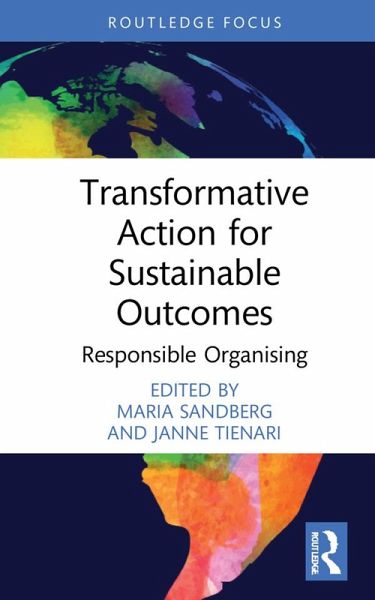
Transformative Action for Sustainable Outcomes (eBook, ePUB)
Responsible Organising
Redaktion: Sandberg, Maria; Tienari, Janne
Versandkostenfrei!
Sofort per Download lieferbar
19,95 €
inkl. MwSt.
Weitere Ausgaben:

PAYBACK Punkte
10 °P sammeln!
This book critically examines sustainability challenges that humankind faces and offers responsible organising as a solution in responding to these challenges.The text explores how different actors can responsibly organise for transformative action towards sustainable outcomes, as expressed in the United Nations Sustainable Development Goals (SDGs). Responsible refers to a reflexive understanding of how to organise in times of sustainability challenges. Organising refers to activities and practices where different actors take transformative action together. This comprehensive edited collection...
This book critically examines sustainability challenges that humankind faces and offers responsible organising as a solution in responding to these challenges.
The text explores how different actors can responsibly organise for transformative action towards sustainable outcomes, as expressed in the United Nations Sustainable Development Goals (SDGs). Responsible refers to a reflexive understanding of how to organise in times of sustainability challenges. Organising refers to activities and practices where different actors take transformative action together. This comprehensive edited collection of short, clear, concise, and compelling chapters brings together scholars in a range of disciplines and blends theoretical perspectives to study humans and social interactions, organisations, nonhumans, and living environments. It offers topical examples from across the world and from organising of companies and other organisations, supply chains, networks, ecosystems, and markets.
The book is written for scholars and students across the social sciences and humanities as well as for practitioners working with the SDGs. It discusses complex issues in an informative and engaging way. It is critical and collaborative. The book serves as an introduction to key themes and perspectives of responsible organising and offers new insights on connections between themes and perspectives.
The text explores how different actors can responsibly organise for transformative action towards sustainable outcomes, as expressed in the United Nations Sustainable Development Goals (SDGs). Responsible refers to a reflexive understanding of how to organise in times of sustainability challenges. Organising refers to activities and practices where different actors take transformative action together. This comprehensive edited collection of short, clear, concise, and compelling chapters brings together scholars in a range of disciplines and blends theoretical perspectives to study humans and social interactions, organisations, nonhumans, and living environments. It offers topical examples from across the world and from organising of companies and other organisations, supply chains, networks, ecosystems, and markets.
The book is written for scholars and students across the social sciences and humanities as well as for practitioners working with the SDGs. It discusses complex issues in an informative and engaging way. It is critical and collaborative. The book serves as an introduction to key themes and perspectives of responsible organising and offers new insights on connections between themes and perspectives.
Dieser Download kann aus rechtlichen Gründen nur mit Rechnungsadresse in A, B, BG, CY, CZ, D, DK, EW, E, FIN, F, GR, HR, H, IRL, I, LT, L, LR, M, NL, PL, P, R, S, SLO, SK ausgeliefert werden.




